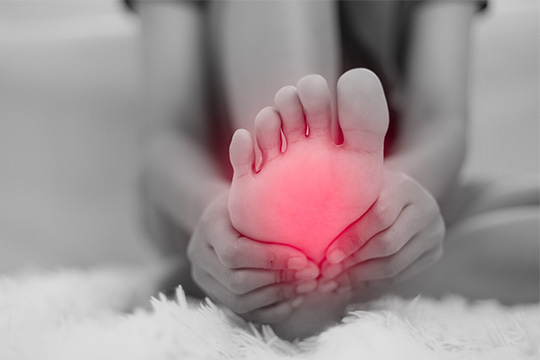Home > Disease and Treatments > Healthy Gut Habits – prioritize a diet rich in fiber, probiotics, and plenty of fluids
Healthy Gut Habits – prioritize a diet rich in fiber, probiotics, and plenty of fluids
Your digestive system is one of the most vital systems in your body, directly influencing everything from your energy levels to your mental health. When it functions properly, you feel energetic, focused, and comfortable. However, when something’s off, the effects can ripple throughout your body. At Royal Care Hospital , the Department of Surgical Gastroenterology emphasizes the importance of nurturing your gut with the right habits. In this blog, we explore the core aspects of maintaining a healthy gut through practical, sustainable lifestyle choices.
Understanding Your Gut
The gut, also referred to as the gastrointestinal tract, starts at your mouth and ends at your rectum. It includes organs like the esophagus, stomach, intestines, liver, pancreas, and gallbladder. Its primary roles are to digest food, absorbing nutrients, and eliminating waste. A healthy gut means efficient digestion, balanced microbiota, and a strong immune system.
Why Gut Health Matters
Recent studies link gut health to a wide range of health conditions—from immunity and skin health to mental clarity and chronic disease management. An unhealthy gut can lead to issues such as bloating, constipation, irritable bowel syndrome (IBS), and even mood disorders such as anxiety and depression.
1. Prioritize Fiber-Rich Foods
Fiber plays a key role in promoting bowel regularity and feeding the beneficial bacteria in your gut. Soluble fiber dissolves in water and forms a gel-like substance, slowing digestion and helping with nutrient absorption. Insoluble fiber adds bulk to your stool, speeding up the elimination process.
Top Fiber Sources :
- Whole grains (oats, brown rice, quinoa)
- Legumes (beans peas, Masoor Dal (red lentil), Moong Dal (green gram), Toor Dal (pigeon pea), Urad Dal (black gram), and Chana (chickpeas)
- Vegetables (broccoli, carrots, spinach)
- Fruits (apples, bananas, pears)
- Nuts and seeds
Aim for at least 25–30 grams of fiber per day, but introduce it gradually to avoid discomfort.
2. Add Probiotics and Prebiotics to Your Diet
Probiotics are live microorganisms that improve or restore gut flora. Prebiotics are plant fibers that nourish these good bacteria.
Probiotic Foods :
- Yogurt with live cultures
- Fermented foods like Dahi (yogurt), Idli, Dosa, Dhokla, Kanji, and pickles
- Pickles (naturally fermented)
Prebiotic Foods :
- Garlic and onions
- Asparagus
- Leeks
- Bananas
- Whole grains
Combining both creates a symbiotic relationship that supports overall gut balance.
3. Stay Hydrated
Water aids in digestion by breaking down food so your body can absorb nutrients. It also helps prevent constipation by softening stools.
Tips for Staying Hydrated :
- Drink at least 8–10 glasses of water daily.
- Limit diuretics like coffee and alcohol that cause fluid loss.
- Add fruits like watermelon and oranges to your meals for natural hydration.
4. Watch Out for Gut-Offending Foods
Certain foods and habits can harm your gut flora and overall digestion.
What to Limit :
- Processed foods high in additives and preservatives
- Sugar and artificial sweeteners
- Excessive caffeine and alcohol
- Fried and spicy foods
Also, avoid eating late at night and practice mindful eating—chewing slowly and avoiding distractions.
5. Manage Stress and Sleep
Your gut and brain communicate through the gut-brain axis. Chronic stress and lack of sleep can disrupt this communication, leading to digestive issues.
Helpful Practices :
- Regular exercise and yoga
- Meditation and deep breathing
- Maintaining a consistent sleep schedule
- Limiting screen time before bed
6. The Role of Gut Health in Disease Prevention
A healthy gut reduces the risk of gastrointestinal diseases like ulcers, GERD, and even colon cancer. It also enhances immunity, helping your body fight off infections and inflammation.
7. When to See a Gastro Surgeon
Even with the best habits, some symptoms may indicate the need for professional help.
Consult a Specialist If You Experience:
- Chronic bloating or abdominal pain
- Blood in stool
- Difficulty swallowing
- Frequent heartburn or acid reflux
- Unexplained weight loss
At Royal Care Hospital, our expert gastroenterology team offers comprehensive diagnostic and surgical solutions for chronic and acute GI conditions.
Your gut health reflects your overall lifestyle. By making conscious choices like eating fiber-rich foods, staying hydrated, and managing stress, you can build a digestive system that supports every aspect of your well-being. Prioritize these simple yet powerful habits, and consult with our specialists if you notice any warning signs. A healthier gut means a healthier you.
Appointments must be made 24 hours in advance.
Book an AppointmentRECENT BLOGS

Cardiovascular disease remains the leading cause of mortality worldwide, accounting for ne...
Read More
Headaches are among the most common ailments people experience, but not all headaches are ...
Read More
Living with diabetes means taking extra care of your health and one of the most important ...
Read More
